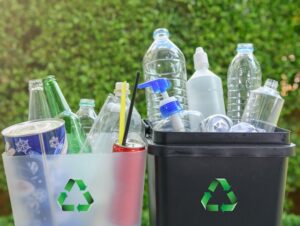GS3 – Environment

Context
Environmental experts have raised concerns that the plastic industry in India is employing tactics similar to those once used by the tobacco lobby—including misinformation, lobbying, and diversionary strategies—to delay or weaken regulations.
Tactics Used by the Plastic Industry
- Responsibility Diversion: Manufacturers shift the blame onto consumers, obscuring systemic production and disposal issues.
- Narrative Distortion: Promotion of recycling—despite its limitations—has been used as a delay tactic, akin to the tobacco industry’s denial of harm.
- Greenwashing Practices: Labels like biodegradable or compostable are often used without strict standards, misleading the public into assuming environmental safety.
- Regulatory Loopholes: Inadequate policies and enforcement allow companies to bypass genuine accountability while projecting a sustainable image.
Current Landscape of Plastic Waste Management in India
- Informal Waste Economy: Around 70% of recycled plastic is handled by informal workers—such as ragpickers and recyclers—without official recognition.
- Lack of Safety Nets: These workers face dangerous exposure to toxins and operate without health cover, protective equipment, or legal rights.
- Structural Vulnerabilities: Living under precarious conditions, they are susceptible to health hazards, economic instability, and social exclusion.
Recent Government Initiatives
- NAMASTE Scheme (2024): Focuses on integrating informal waste workers into the formal economy by providing protective gear, Ayushman Bharat health insurance, and social benefits.
- Extended Producer Responsibility (EPR): Under the Plastic Waste Management Rules (2016, amended 2022), producers must take back the plastic they produce. However, less than half comply with the mandate.
- Single-Use Plastic Ban (2022): Banned 19 items, but according to CSE (2023), this covers only 11% of India’s total plastic waste, limiting the overall impact.
Suggested Measures Ahead
- Strict EPR Enforcement: Use digital tracking systems and impose penalties for non-compliance.
- Clear Eco-Labelling: Enforce standardised labelling for materials marketed as biodegradable or compostable.
- Counter Greenwashing: Mandate third-party certification and ban misleading environmental claims.
- Global Engagement: Support strong and binding clauses in UN plastics treaty negotiations.
- Worker Integration: Provide legal status, social security, and protective measures to formalise the informal waste workforce.




